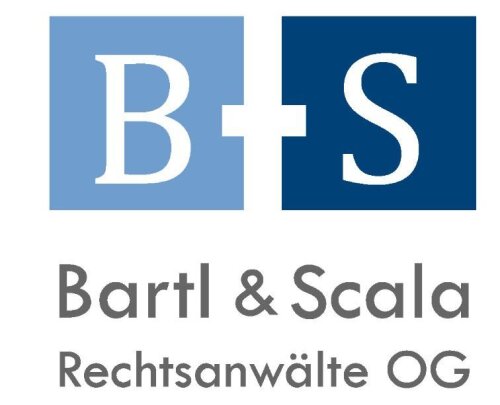Best Collaborative Law Lawyers in Graz
Share your needs with us, get contacted by law firms.
Free. Takes 2 min.
Free Guide to Hiring a Family Lawyer
List of the best lawyers in Graz, Austria
About Collaborative Law in Graz, Austria
Collaborative Law, also known as Collaborative Practice, is a legal approach that emphasizes mutual respect and open communication to resolve disputes without going to court. In Graz, Austria, this method is often employed to address family law issues such as divorce, custody arrangements, and other domestic conflicts. Collaborative Law aims to provide a more amicable, cost-effective, and private resolution of disputes compared to traditional litigation.
Why You May Need a Lawyer
People may seek legal help in the field of Collaborative Law for various reasons, including:
- Divorce or separation: To reach a fair settlement without acrimonious court battles.
- Child custody and support: To collaboratively develop parenting plans that best serve the children’s interests.
- Property division: To ensure an equitable distribution of assets and liabilities.
- Alimony and spousal support: To negotiate terms that are reasonable for both parties.
- Modification of existing agreements: To amend previous arrangements due to changes in circumstances.
In these situations, a lawyer trained in Collaborative Law can facilitate productive negotiations and help both parties reach a mutually satisfactory agreement.
Local Laws Overview
Collaborative Law in Graz, Austria, operates within the framework of Austrian family law and civil procedures. Key aspects include:
- Family Law Act: Governs issues related to marriage, divorce, child custody, and support.
- Property Division: Austrian law mandates that marital property be divided fairly, taking into account contributions by both parties.
- Child Support Guidelines: Established regulations ensure that child support is calculated based on the needs of the child and the financial capacity of the parents.
- Confidentiality: All discussions and materials used in the collaborative process are kept confidential, encouraging honest communication.
- Voluntary Participation: Both parties must willingly agree to engage in the collaborative process and can terminate it at any time if it becomes unproductive.
Frequently Asked Questions
What is the primary goal of Collaborative Law?
The primary goal is to resolve disputes amicably without going to court, focusing on mutual respect and open communication.
Is Collaborative Law suitable for every divorce case?
While it can be effective for many, it may not be ideal for cases involving domestic violence or significant power imbalances between the parties.
How long does the collaborative process take?
It varies depending on the complexity of the issues and the willingness of both parties to cooperate; it can take a few months to a year.
What happens if the collaborative process fails?
If it fails, the parties must seek alternative dispute resolution methods, such as mediation or litigation.
Is the agreement reached in Collaborative Law legally binding?
Yes, once both parties sign the agreement and it is approved by a court, it becomes legally binding.
Can Collaborative Law be used for issues other than divorce?
Yes, it can be applied to various types of disputes, including business conflicts, employment issues, and other civil matters.
How much does Collaborative Law cost?
The cost can vary widely, but it is generally more cost-effective than traditional litigation due to its nature of avoiding protracted court battles.
What is the role of the lawyer in Collaborative Law?
The lawyer acts as a facilitator and advisor, helping clients negotiate and reach a fair agreement while ensuring their legal rights are protected.
Can Collaborative Law agreements be modified later?
Yes, they can be modified if both parties agree, or through a court order if a significant change in circumstances is demonstrated.
Do both parties need to hire separate lawyers?
Yes, each party must have their own lawyer trained in Collaborative Law to ensure balanced representation and fair negotiation.
Additional Resources
For more information and support, consider the following resources:
- Chamber of Lawyers in Styria: Provides a directory of lawyers trained in Collaborative Law.
- Austrian Association for Collaborative Practice: Offers education, training, and resources related to Collaborative Law.
- Family Law Courts in Graz: Can assist with approving collaborative agreements and offer guidance on legal procedures.
- Local Mediation Centers: May provide complementary services to assist with dispute resolution.
Next Steps
If you need legal assistance in Collaborative Law, consider the following steps:
- Consult with a lawyer specialized in Collaborative Law to discuss your case and explore your options.
- Gather all relevant documents and information related to your dispute.
- Consider joining an initial collaborative session to understand how the process works.
- Be open to communication and negotiation, as these are key elements of successful Collaborative Law.
- Ensure any agreement reached is documented and submitted to the court for approval where necessary.
Taking these steps will guide you through the Collaborative Law process and help achieve a resolution that respects both parties' interests and needs.
Lawzana helps you find the best lawyers and law firms in Graz through a curated and pre-screened list of qualified legal professionals. Our platform offers rankings and detailed profiles of attorneys and law firms, allowing you to compare based on practice areas, including Collaborative Law, experience, and client feedback.
Each profile includes a description of the firm's areas of practice, client reviews, team members and partners, year of establishment, spoken languages, office locations, contact information, social media presence, and any published articles or resources. Most firms on our platform speak English and are experienced in both local and international legal matters.
Get a quote from top-rated law firms in Graz, Austria — quickly, securely, and without unnecessary hassle.
Disclaimer:
The information provided on this page is for general informational purposes only and does not constitute legal advice. While we strive to ensure the accuracy and relevance of the content, legal information may change over time, and interpretations of the law can vary. You should always consult with a qualified legal professional for advice specific to your situation.
We disclaim all liability for actions taken or not taken based on the content of this page. If you believe any information is incorrect or outdated, please contact us, and we will review and update it where appropriate.













